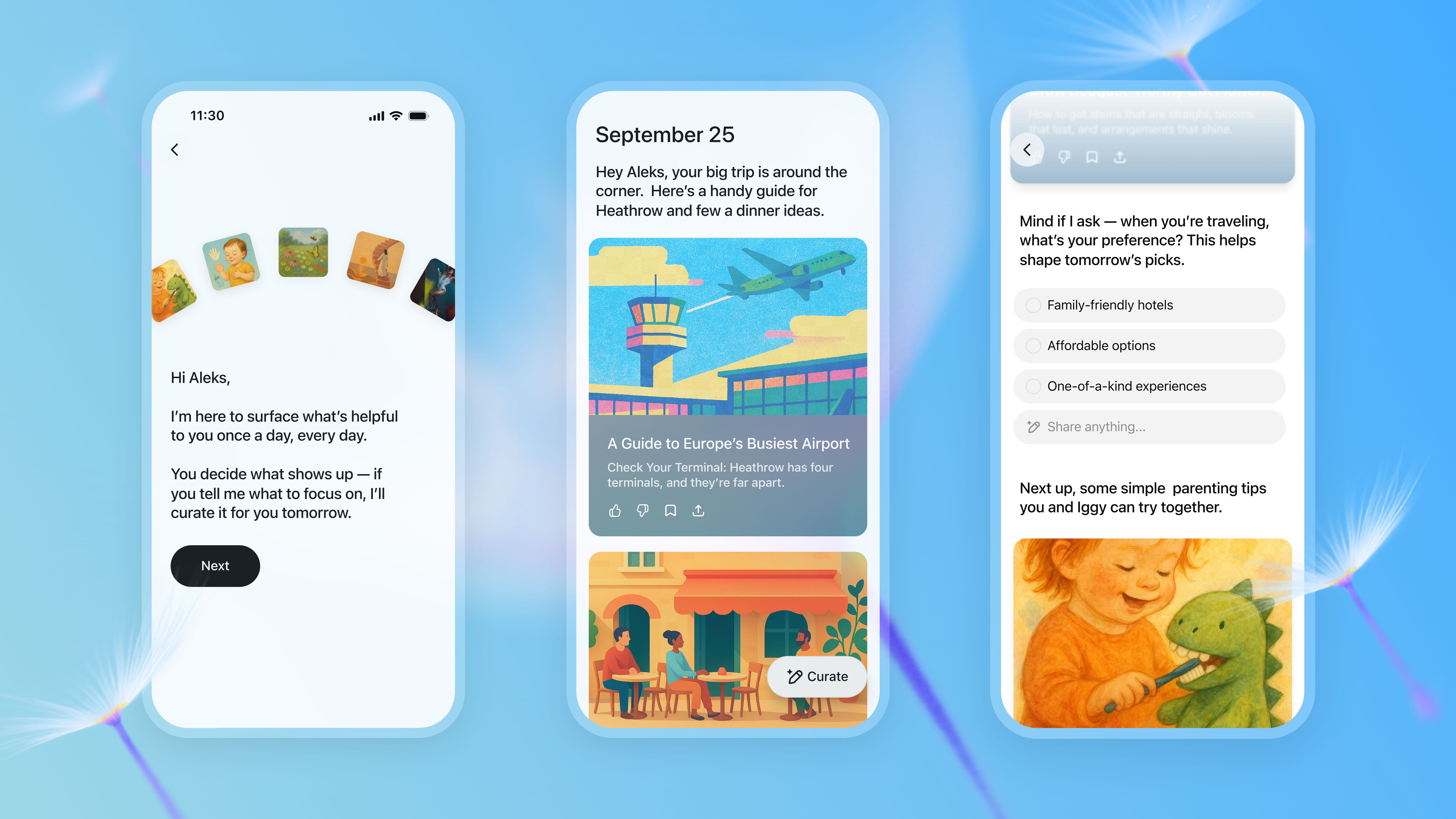ChatGPT’s new Pulse feature will help you manage your day with handy visual updates
This time, ChatGPT is coming to you

Sign up for breaking news, reviews, opinion, top tech deals, and more.
You are now subscribed
Your newsletter sign-up was successful
- ChatGPT launches new Pulse feature that delivers personal updates based on your chats
- You can curate what Pulse researches by letting it know what’s useful
- Delivers the results as topical visual cards that you can quickly scan or open for more detail
OpenAI has released a brand new feature called Pulse, which delivers curated updates based on your chats, history, and calendar. Instead of reacting to you, which is the way ChatGPT usually works, Pulse proactively delivers you ‘pulses’ of information based on your recent chats, feedback, and connected apps, like your calendar.
Pulses are delivered as a series of visual cards that you can scan through quickly or open for more detail, giving you a great way to start your day with a handy set of focused, visual updates.
The feature is initially rolling out for ChatGPT Pro users on mobile, as a "preview release", but will become more widely available in the near future. OpenAI says that its goal is to make the feature "available to everyone” eventually.
Customized Pulses
You can curate what ChatGPT researches by telling it what’s useful and what isn’t. In the example we’ve seen, Pulse had looked into a user’s calendar, realized they had a plane trip from Heathrow coming up, and sent them information about Heathrow airport, without them even asking for it. Pulse then asked follow-up questions about what sort of trip it was (family holiday, work, etc), so that it could provide more tailored information.
You will receive a Pulse once a day, every day. Overnight Pulse will gather data from your ChatGPT conversations, history, and direct feedback and use it to compile your Pulse, which it delivers in the morning. Pulse makes use of the Connections feature in ChatGPT, so it can connect to your Google Drive, Gmail, and Google Calendar. This means that it will be able to deliver birthday reminders in plenty of time for you to buy a gift or card, or send you a sample meeting agenda for your upcoming meetings.
OpenAI says that all topics shown in Pulse will pass through various safety checks to make sure that it avoids showing you harmful content or anything that violates its policies.
Simply tap “curate” and you can request what you want to see in future editions of your Pulse. So you could ask it for a Friday roundup of your week, tips for learning something, or even something specific, like “focus on the NFL Super Bowl news tomorrow”.
Sign up for breaking news, reviews, opinion, top tech deals, and more.
A simple thumbs-up or thumbs-down feedback system means that Pulse can learn about the sort of content you like over time.
A paradigm shift in AI
While Pulse has modest beginnings, it marks a fundamental shift in the way ChatGPT works. It turns ChatGPT from a passive chatbot into a proactive assistant that’s working on your behalf, even when you’re not interacting with it or instructing it to do so.
“And this is only the beginning. Today Pulse connects to email and calendar. In the future, every new data stream you decide to connect to ChatGPT will create even more actions that your AI assistant can take”, wrote Fidji Simo, CEO of Applications at OpenAI, in a blog on Pulse. “This shift – from a chat interface to a proactive, steerable AI assistant working alongside you – is how AI will unlock more opportunities for more people.”
We’ll keep bringing you more news on Pulse as it becomes more widely available, so check back regularly for updates.
You might also like

Graham is the Senior Editor for AI at TechRadar. With over 25 years of experience in both online and print journalism, Graham has worked for various market-leading tech brands including Computeractive, PC Pro, iMore, MacFormat, Mac|Life, Maximum PC, and more. He specializes in reporting on everything to do with AI and has appeared on BBC TV shows like BBC One Breakfast and on Radio 4 commenting on the latest trends in tech. Graham has an honors degree in Computer Science and spends his spare time podcasting and blogging.
You must confirm your public display name before commenting
Please logout and then login again, you will then be prompted to enter your display name.